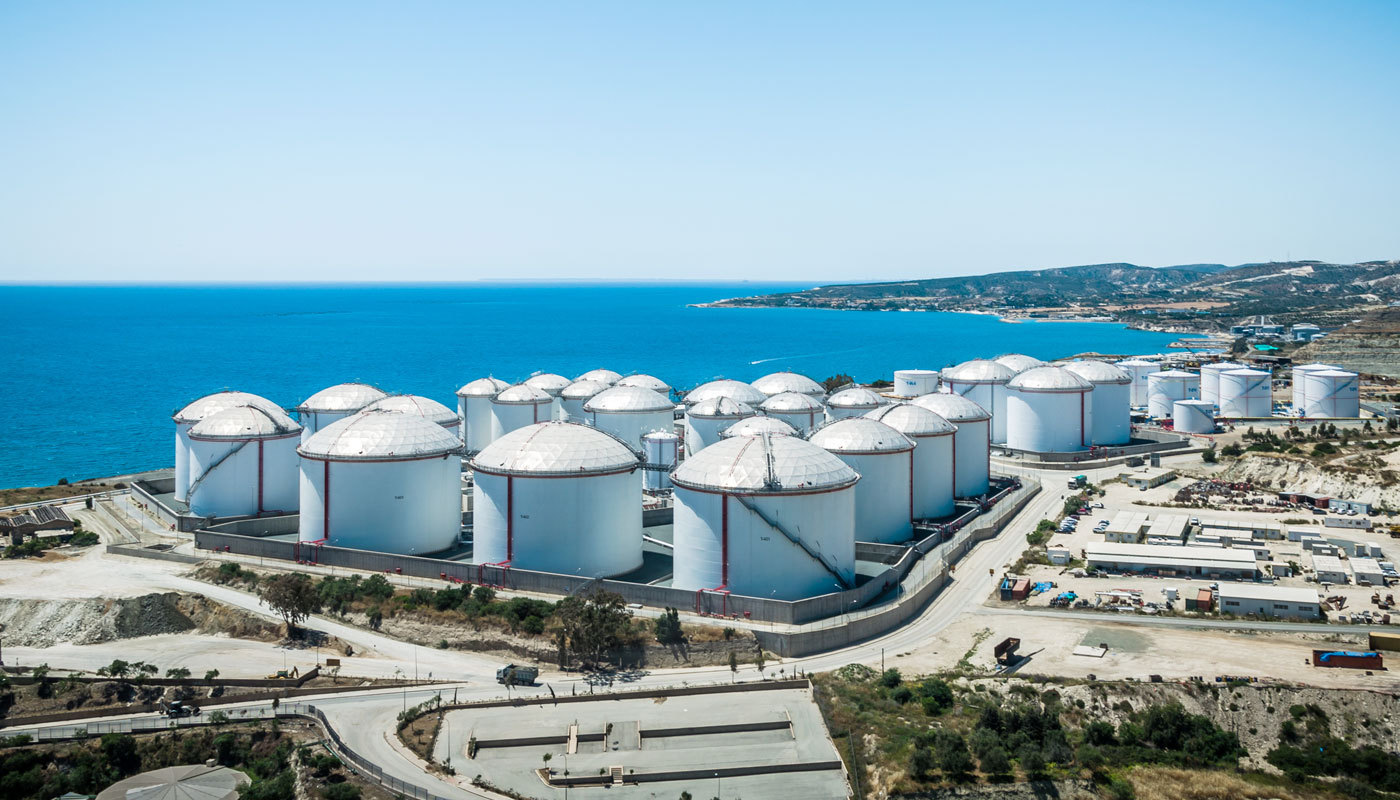Norway’s Hoegh LNG on Friday confirmed that it has officially applied to Nicosia for a liquefied natural gas infrastructure ownership, operations, and development license in Cyprus.
In a statement, Hoegh LNG said it sent letters to President Nicos Anastasiades, and the Ministers of Energy and Finance, in which the “advantages and benefits of its proposal for the installation of an FSRU in Cyprus, and more specifically at Vasiliko, were presented”.
“The purpose of the letters was for the President and the two Ministers to be informed about Hoegh LNG’s proposal, the application for licensing which was officially submitted to Cyprus Energy Regulatory Authority (CERA), being the competent authority,” said the statement.
Hoegh LNG said it was offering Cyprus the installation, within the first quarter of 2021, of an FSRU at Vasiliko and a pipeline to transport the gas to the EAC’s power plant and potentially other users.
“This solution can serve as interim until the state-owned LNG infrastructure is in place at Vasiliko.”
The company said its proposal “does not in any way interfere with the government’s plans”.
It said Cyprus, “will be able to save in excess of €100 mln per year from 2021 onwards, by switching power generation to burning natural gas from heavy fuel oil”.
By doing so, Cyprus will achieve lower emissions from power generation (resulting in lower cost and the country’s economy will benefit significantly from lower electricity production cost, said Hoegh LNG.
It clarified that the proposal “requires no state aid or investment” and Hoegh LNG is “open to working closely with DEFA, for delivering this important infrastructure project for Cyprus”.
Cyprus is pushing forward to diversify its energy mix to reach new emission targets for the country’s power production.
The country plans to replace the consumption of refined oil products with cleaner solutions such as LNG.
Hoegh says the plan for LNG imports into Cyprus consists of using one of its floating storage and regasification units as a fast track solution for the required fuel switching.
The FSRU can stay on location as a bridging solution or for an extended period serving different customers on Cyprus as well as bulk breaking and delivering LNG to other customers in the Mediterranean.
For this planned project, Hoegh LNG is working together with VTT Vasiliko and H4E GasFuel.
VTTV owns an existing jetty in the Vasiliko Port, at close proximity to the country’s power plants, that can be adapted for the FSRU terminal.
China-Greece consortium
Energy Minister George Lakkotrypis said the Norwegian company’s offer is being considered, but that the infrastructure project with Chinese and Greek investors was going ahead as planned.
In December, Cyprus signed a landmark deal with a Chinese-led consortium to build a €290 mln terminal for the import of liquified natural gas for electricity generation, said to be among the biggest energy projects.
Cyprus’ natural gas infrastructure company (ETIFA)) signed a contract to build its first LNG terminal with the multinational consortium led by China Petroleum Pipeline Engineering.
The consortium also includes METRON (Greece), Hudong-Zhonghua Shipbuilding (China) and Wilhelmsen Ship Management (Norway).
The LNG terminal to be completed by end 2021 or early 2022, will include a floating storage and regasification unit (FSRU), a jetty for mooring the FSRU, a jetty-borne gas pipeline and related infrastructure.
At an estimated cost of €290 mln, the project has secured a €101-mln grant from the EU under the Connecting Europe Facility (CEF) while the Cyprus Electricity Authority will contribute €43 mln securing a 30% stake in ETIFA.
ETIFA will cover the remaining part of the cost with funding from international lenders such as the European Investment Bank and the European Bank for Reconstruction and Development, with state guarantees.
The infrastructures operational expenditure (Opex) is estimated at €10.5 mln per annum.
State Natural Gas Public Company DEFA has launched an additional tender for the LNG supply, attracting expression of interest from 25 suppliers.
Cyprus intends to import approximately 0.5 bcm of LNG through Gas Sale Purchase Agreements (GSPAs) with a duration of three to four years, maintaining the option to purchase LNG also from SPOT markets.
Turning to natural gas will help Cyprus safeguard energy supply, diversify the energy mix, and promote competition in the electricity market through the involvement of independent producers.
Cyprus had three unsuccessful attempts to import natural gas in the past due to its small size and energy needs.
The use of natural gas will reduce Cyprus’ carbon footprint by 25% to 30% in replacing oil-burning for electricity generation.
Based on conservative estimates, electricity generation cost savings will range between 15% to 25% from 2022-2025.
Greek oil and gas producer Energean has made a pitch to sell its Israeli natural gas to Cyprus via pipeline at a competitive price while Nicosia is opting for LNG.
It has offered to build a $350 mln pipeline to Cyprus — using its own money — to supply gas from its Karish North field to the island in the power sector.
So far, Cyprus has said it does not need the pipeline as it plans to install a floating LNG import terminal.
It is also set to award a long-term supply contract for LNG — in effect creating a single-supply market.
Energean’s proposal envisages the import and supply of natural gas to Cyprus by 2021 at “highly competitive prices”.
The company registered with the London and Tel Aviv stock markets filed applications with the Cyprus Energy Regulatory Authority.
The plan includes the development of a gas pipeline from the Energean Power FPSO, which will operate within Israel’s EEZ, to Vasiliko.









